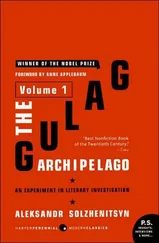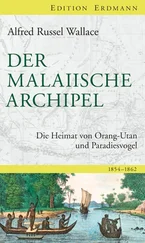About a fortnight afterwards I heard that one was feeding in a tree in the swamp just below the house, and, taking my gun, was fortunate enough to find it in the same place. As soon as I approached, it tried to conceal itself among the foliage; but, I got a shot at it, and the second barrel caused it to fall down almost dead, the two balls having entered the body. This was a male, about half-grown, being scarcely three feet high. On April 26th, I was out shooting with two Dyaks, when we found another about the same size. It fell at the first shot, but did not seem much hurt, and immediately climbed up the nearest tree, when I fired, and it again fell, with a broken arm and a wound in the body. The two Dyaks now ran up to it, and each seized hold of a hand, telling me to cut a pole, and they would secure it. But although one arm was broken and it was only a half-grown animal, it was too strong for these young savages, drawing them up towards its mouth notwithstanding all their efforts, so that they were again obliged to leave go, or they would have been seriously bitten. It now began climbing up the tree again; and, to avoid trouble, I shot it through the heart.
On May 2nd, I again found one on a very high tree, when I had only a small 80-bore gun with me. However, I fired at it, and on seeing me it began howling in a strange voice like a cough, and seemed in a great rage, breaking off branches with its hands and throwing them down, and then soon made off over the tree-tops. I did not care to follow it, as it was swampy, and in parts dangerous, and I might easily have lost myself in the eagerness of pursuit.
On the 12th of May I found another, which behaved in a very similar manner, howling and hooting with rage, and throwing down branches. I shot at it five times, and it remained dead on the top of the tree, supported in a fork in such a manner that it would evidently not fall. I therefore returned home, and luckily found some Dyaks, who came back with me, and climbed up the tree for the animal. This was the first full-grown specimen I had obtained; but it was a female, and not nearly so large or remarkable as the full-grown males. It was, however, 3 ft. 6 in. high, and its arms stretched out to a width of 6 ft. 6 in. I preserved the skin of this specimen in a cask of arrack, and prepared a perfect skeleton, which was afterwards purchased for the Derby Museum.
Only four days afterwards some Dyaks saw another Mias near the same place, and came to tell me. We found it to be a rather large one, very high up on a tall tree. At the second shot it fell rolling over, but almost immediately got up again and began to climb. At a third shot it fell dead. This was also a full-grown female, and while preparing to carry it home, we found a young one face downwards in the bog. This little creature was only about a foot long, and had evidently been hanging to its mother when she first fell. Luckily it did not appear to have been wounded, and after we had cleaned the mud out of its mouth it began to cry out, and seemed quite strong and active. While carrying it home it got its hands in my beard, and grasped so tightly that I had great difficulty in getting free, for the fingers are habitually bent inwards at the last joint so as to form complete hooks. At this time it had not a single tooth, but a few days afterwards it cut its two lower front teeth. Unfortunately, I had no milk to give it, as neither Malays, Chinese nor Dyaks ever use the article, and I in vain inquired for any female animal that could suckle my little infant. I was therefore obliged to give it rice-water from a bottle with a quill in the cork, which after a few trials it learned to suck very well. This was very meagre diet, and the little creature did not thrive well on it, although I added sugar and cocoa-nut milk occasionally, to make it more nourishing. When I put my finger in its mouth it sucked with great vigour, drawing in its cheeks with all its might in the vain effort to extract some milk, and only after persevering a long time would it give up in disgust, and set up a scream very like that of a baby in similar circumstances.
When handled or nursed, it was very quiet and contented, but when laid down by itself would invariably cry; and for the first few nights was very restless and noisy. I fitted up a little box for a cradle, with a soft mat for it to lie upon, which was changed and washed every day; and I soon found it necessary to wash the little Mias as well. After I had done so a few times, it came to like the operation, and as soon as it was dirty would begin crying and not leave off until I took it out and carried it to the spout, when it immediately became quiet, although it would wince a little at the first rush of the cold water and make ridiculously wry faces while the stream was running over its head. It enjoyed the wiping and rubbing dry amazingly, and when I brushed its hair seemed to be perfectly happy, lying quite still with its arms and legs stretched out while I thoroughly brushed the long hair of its back and arms. For the first few days it clung desperately with all four hands to whatever it could lay hold of, and I had to be careful to keep my beard out of its way, as its fingers clutched hold of hair more tenaciously than anything else, and it was impossible to free myself without assistance. When restless, it would struggle about with its hands up in the air trying to find something to take hold of, and, when it had got a bit of stick or rag in two or three of its hands, seemed quite happy. For want of something else, it would often seize its own feet, and after a time it would constantly cross its arms and grasp with each hand the long hair that grew just below the opposite shoulder. The great tenacity of its grasp soon diminished, and I was obliged to invent some means to give it exercise and strengthen its limbs. For this purpose I made a short ladder of three or four rounds, on which I put it to hang for a quarter of an hour at a time. At first it seemed much pleased, but it could not get all four hands in a comfortable position, and, after changing about several times, would leave hold of one hand after the other, and drop onto the floor. Sometimes when hanging only by two hands, it would loose one, and cross it to the opposite shoulder, grasping its own hair; and, as this seemed much more agreeable than the stick, it would then loose the other and tumble down, when it would cross both and lie on its back quite contentedly, never seeming to be hurt by its numerous tumbles. Finding it so fond of hair, I endeavoured to make an artificial mother, by wrapping up a piece of buffalo-skin into a bundle, and suspending it about a foot from the floor. At first this seemed to suit it admirably, as it could sprawl its legs about and always find some hair, which it grasped with the greatest tenacity. I was now in hopes that I had made the little orphan quite happy; and so it seemed for some time, until it began to remember its lost parent, and try to suck. It would pull itself up close to the skin, and try about everywhere for a likely place; but, as it only succeeded in getting mouthfuls of hair and wool, it would be greatly disgusted, and scream violently, and, after two or three attempts, let go altogether. One day it got some wool into its throat, and I thought it would have choked, but after much gasping it recovered, and I was obliged to take the imitation mother to pieces again, and give up this last attempt to exercise the little creature.
After the first week I found I could feed it better with a spoon, and give it a little more varied and more solid food. Well-soaked biscuit mixed with a little egg and sugar, and sometimes sweet potatoes, were readily eaten; and it was a never-failing amusement to observe the curious changes of countenance by which it would express its approval or dislike of what was given to it. The poor little thing would lick its lips, draw in its cheeks, and turn up its eyes with an expression of the most supreme satisfaction when it had a mouthful particularly to its taste. On the other hand, when its food was not sufficiently sweet or palatable, it would turn the mouthful about with its tongue for a moment as if trying to extract what flavour there was, and then push it all out between its lips. If the same food was continued, it would set up a scream and kick about violently, exactly like a baby in a passion.
Читать дальше












